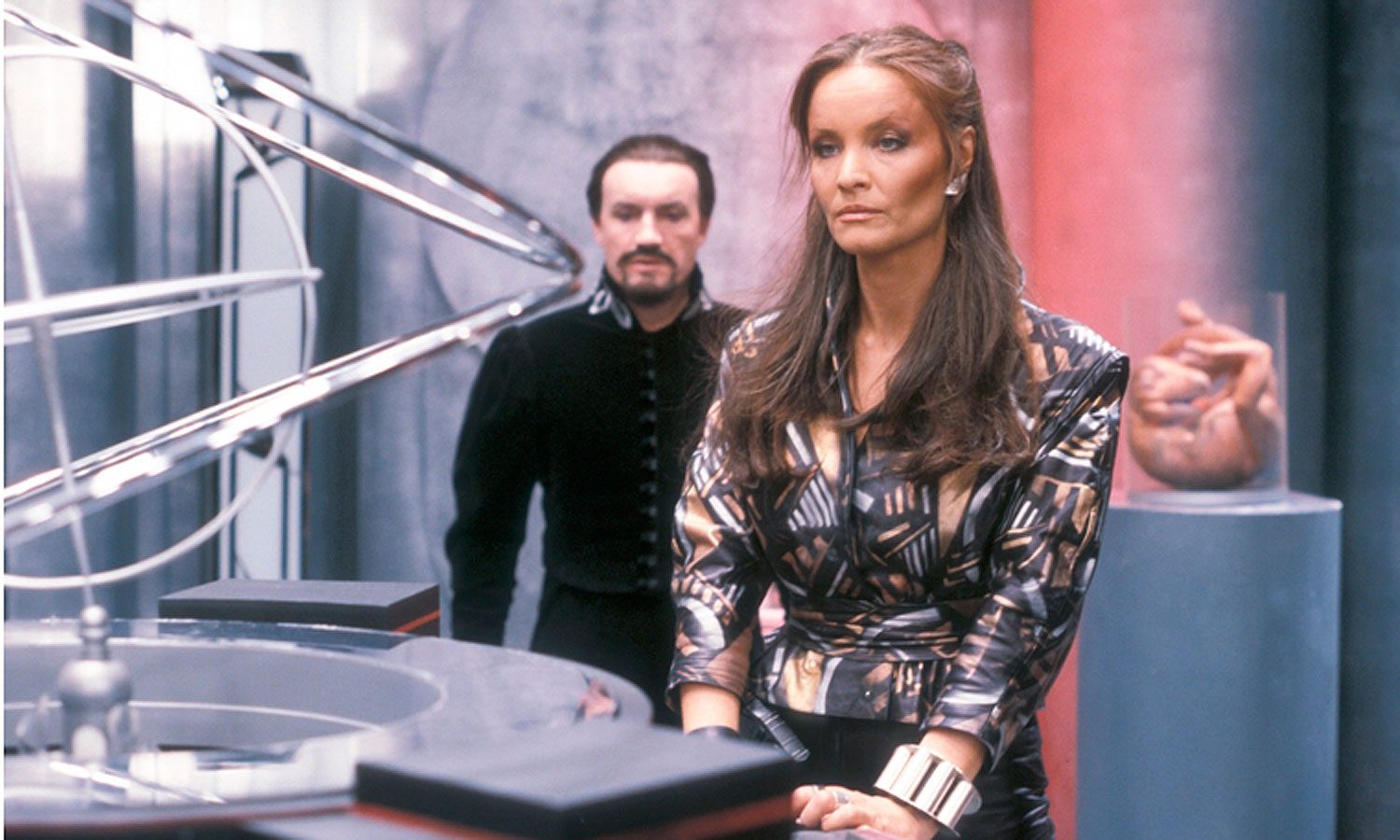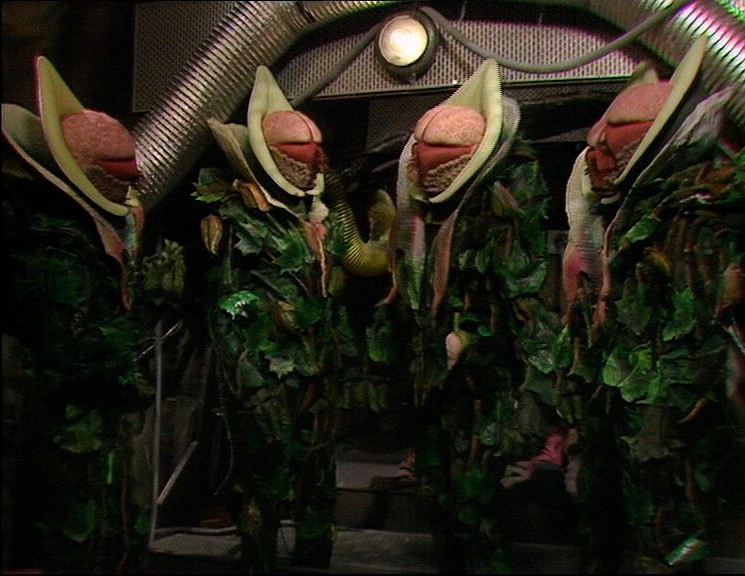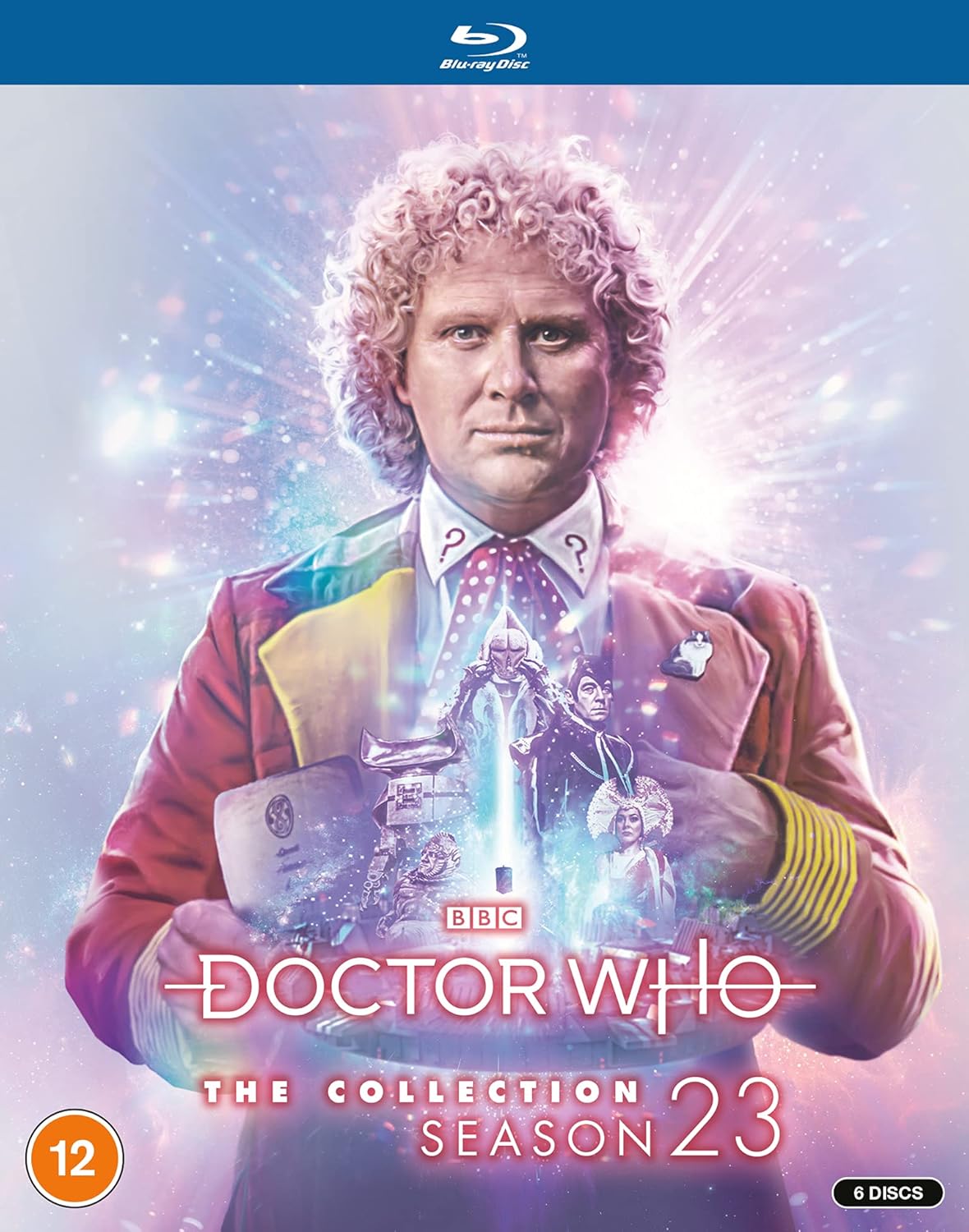Pip and Jane Baker wrote for Doctor Who in the late 1980s, producing characters and stories that had a lasting effect on the Whoniverse,
Perhaps Pip and Jane Baker’s single biggest contribution to Doctor Who is the creation of the Rani. She was another renegade Time Lord from the Doctor’s home planet, and despite having only two TV appearances, she is still talked about regularly. Even in the modern era, the Rani is name-checked; she was most recently mentioned in Russell T Davies’ Tales of the TARDIS mini series, in which the Seventh Doctor was reunited with his companion Ace.
And unlike other villainous characters from Gallifrey, the Rani wasn’t solely interested in sowing chaos and destruction. She was a scientist, first and foremost; she was committed to experimentation and discovery. The only difference in the Rani’s case was that she didn’t have any qualms about who suffered or who she killed. If a bunch of hapless humans got transformed into trees over the course of her experiments, so be it. The most important thing was the advancement of science.
The Rani made her debut in Pip and Jane Baker’s first Doctor Who story ‘The Mark of the Rani,’ which starred Colin Baker as the Sixth Doctor and, interestingly, the Master played by Anthony Ainley. Yes, in this adventure the Doctor went up against two renegades from his home planet, and surely one of the great highlights is the bitter interplay between the two villains, who most certainly don’t gel. The Rani views the Master as a pesky idiot who’s getting in the way of her work.

Pip and Jane Baker would return to Doctor Who for two subsequent series, but they weren’t held in the highest regard by the script editor Eric Saward, who has spoken candidly about their working relationship in DVD interviews. Indeed, although he hired them to write a segment of 1986’s ‘Trial of a Time Lord,’ this was very much out of desperation; Saward was trying to build a ‘dream team’ of writers for Season 23, but he struggled to find anyone who was up for the job, so he fell back on people that he’d worked with previously. With Pip and Jane Baker, he knew that they would, at least, deliver something usable.
In retrospect, Saward’s lack of faith is ironic as Pip and Jane Baker went on to write what is generally regarded as one of the highlights of Season 23: ‘Terror of the Vervoids.’ It’s a bit like Agatha Christie’s Murder on the Orient Express, and sees the Doctor and Mel on board a deep space passenger vessel with a murderer in their midst – and a race of killer plants with Birmingham accents.
But if you can look past the obvious cheese and budget limitations, ‘Terror of the Vervoids’ is a gripping story, and some fans would even go so far as to say that it is their favourite adventure of the Colin Baker era. In fact, when he began as showrunner in 2003, Russell T Davies said in an interview to the Radio Times that the cliffhanger to ‘Terror of the Vervoids’ episode one was one of his all-time favourites.

Moreover, if it hadn’t have been for Pip and Jane Baker, Season 23 might never have been finished. This is because the original writer of the story’s finale, Robert Holmes, died before he could finish the script, and Eric Saward resigned after a fall-out with the producer John Nathan-Turner, refusing to let him use any of his work and threatening legal action if he did.
Suddenly, John Nathan-Turner found himself in the midst of a crisis, and in desperation he asked Pip and Jane Baker to meet him (and a lawyer!) at the BBC so that he could bring them up to speed, show them a few photos, and ask them to pen a 25 minute script to round-off ‘The Trial of a Time Lord’ – in a matter of days.
This request was made even harder by the fact that Pip and Jane Baker had to find a way to resolve the (quite complicated) story arc with little-to-no information on what was originally intended. And the fact that they were able to do this in such a short timeframe, and deliver an episode that was actually quite good, is a testament to their skill as writers.
It’s a shame, then, that their final contribution to the Whoniverse receives so much derision from fans. 1987’s ‘Time and the Rani‘ is often regarded as one of the low points of the Seventh Doctor’s era, and indeed of Classic Who as a whole, but again, it’s a miracle that the BBC actually managed to get it onto the screen.
This is because Colin Baker was fired immediately after ‘The Trial of a Time Lord’ aired, and John Nathan-Turner, keen to move on himself, was essentially handed a three-line whip; he had to produce a new series of Doctor Who, or there would be no more work for him at the BBC, and the programme would be shelved. But he had no Doctor, no script editor, no plans… and only a few weeks before the cameras started rolling.
So whilst it’s easy to criticise ‘Time and the Rani’ for its faults, one has to remember what Pip and Jane Baker were up against. They were being given new information every day. When they first started writing, they were told that Colin Baker would be available, and they were asked to write the story in such a way that he could regenerate at the end.

But then they were told that Colin Baker was refusing to shoot the regeneration scene, and they had to tag a brief death scene onto the beginning of the adventure, which was far from ideal.
And then there was the incoming script editor Andrew Cartmel, who was relatively young and inexperienced, but brimming with ideas. Pip and Jane Baker were asked to take him under their wing and nurture him, whereas Cartmel was quite clear in what he wanted to achieve, and something of a creative clash ensued. One of the biggest points of contention was over ‘Time and the Rani’s opening; Pip and Jane Baker wanted to base it on the Biblical story of King Solomon and the two mothers, whereas Cartmel wanted to use Einstein, who he believed would be more recognisable to modern viewers.
So whilst ‘Time and the Rani’ might not be a fan favourite, it stands as a testament to what can be achieved by two dedicated writers in the midst of a crisis. And it’s no exaggeration to say that Pip and Jane Baker played a key role in Doctor Who‘s survival in the late 80s. If they hadn’t delivered those impossible scripts, viewers may have been left staring at the BBC test card. (And yes, we know some of you will say that you’d rather watch a blank screen than ‘Time and the Rani’ – we’ll get that joke in before you do!)
So tell us: what do you love most about Pip and Jane Baker’s writing? And which is your favourite story? Let us know in the comments below.









I loved Pip and Jane! They were underrated. Also you should mention Mel, who people are now appreciating!